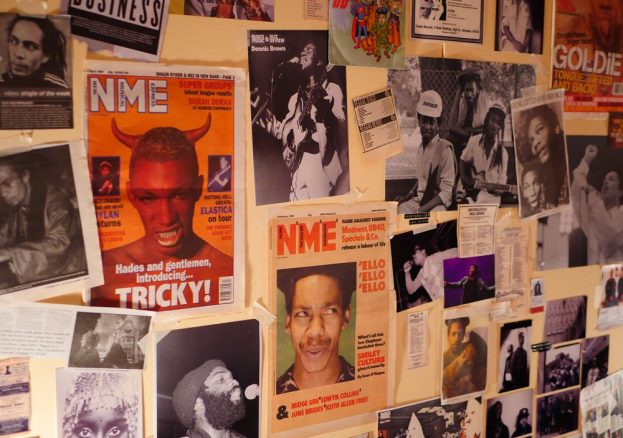
The early concept of BHM can be traced back to the celebrated historian Carter G. Woodson in 1926 in the US. Intellectual and political exchanges between leaders and campaigners in the US and UK throughout history has been commonplace; and new approaches towards the empowerment of Black people have been inspired. In the UK, the BHM initiative was brought forward by Akyabba Addai-Sebbo and in its infancy was proposed as a set of lectures across London boroughs, but rose to greater appreciation as many people across the country also celebrated the African Jubilee Year Declaration.
With the support of the GLC and the Strategic Policy Unit driven by campaigners like Ansel Wong and Linda Bellos, and political support from Herman Ouseley, Paul Boateng MP, Bernie Grant MP, and many others, the first Black History Month in the UK took place on 1 October 1987. The original aim of BHM was to inspire a greater appreciation of Black history for young people in Britain. According to Addai-Sebbo, October is a significant month of tolerance and reconciliation in Africa, it was fitting to adopt the same ethos here. Black History Month was seen as an opportunity to reconnect with the histories of Africa and the diaspora.
There are many debates around the relevancy of Black History Month today? Do we still need a month to celebrate and raise awareness as we did 30 years ago in the 1980s? But, in truth Black history is still not widely adopted into the national curriculum. And, for those who do embrace the teaching of Black history in formal education, how much of the subject matter relates to the Black pioneers and historical figures of British history.
Black Cultural Archives (BCA) was founded in the same ethos as BHM in 1981. Spearheaded by campaigner and educationalist Len Garrison the promotion and teaching of Black history was at the heart of the mission for the unique institution. With its mission statement to collect, preserve and celebrate the histories of diverse people of African and Caribbean descent in Britain. The archive institution plays an important role in advocating for the future of BHM. Its big vision is to broaden the subject knowledge of educators, greater accessibility for all and the understanding of how Black history is part of our shared British history. BCA’s presence builds on the foundation of initiatives like BHM and continues to build the confidence of educators to inspire future generations to think openly and critically.
BCA’s archive collection documents the history of Black History Month mapping its expansion within London boroughs and beyond. As we mark the 30th anniversary of BHM, we also place a marker for change and a new future vision. BCA aims to not only remember the past and capture the present, but to build a collective voice that empowers future generations. The dedicated Learning Team works with schools, higher education institutions and universities across the country to critically engage students and teachers offering a deeper insight into how the past shapes ideas about the present and future. BCA’s work unlocks the potential of their archive collection to develop new ideas, thinking and ways in which to enjoy Black heritage and culture in Britain. Take a closer look at the personal narratives and how they connect with everyday experiences and have contributed to the history of this country.
Whether bringing to life the poetry of the Black Georgian freedom writers to the dynamism of the pioneers of Black Sound in Britain from the jazz clubs to sound system culture to the pirate radio stations and DIY music studios. The current exhibition Black Sound: Black British Music’s Creative Journey is on display until 4 November 2017 at the heritage centre in Brixton, London. And, a series of online exhibitions share the narratives of the early Georgians and Edwardians.
Also, the conservation project and upcoming exhibition, Family Ties: The Adamah Papers, rediscovers the kingship and regality of a British-Ghanaian family through a personal, true story. A snapshot of everyday life in early 1900s to the 1950s in Ghana, this extraordinary rediscovery includes important information about what it was like to live under colonial rule with the earliest document dating from 1858. Hear the stories of the people that lived these lives and in their own words. Travel from Ghana to Britain through the lives of the Adamah family and learn how one family’s history tells a global story.
So, we can celebrate the BHM legacy that has been forged and also spaces such as Black Cultural Archives that offers everyone a space to see British history from another perspective. Black Cultural Archives works beyond the parameters of one month. The objective is to no longer marginalise Black history, but to ensure it is inclusive in our wider British history. And, is truly celebrated for its richness and contribution to our shared society.
Black Sound: Black British Music’s Creative Journey is on display until 4 November 2017 at the heritage centre in Brixton, London. Free admission, donations welcome.
Access to the archive collection and reference library is free to the general public.
Black Cultural Archives is located in Brixton, London. Open Tuesday – Saturday, 10am – 6pm. For more information visit, www.bcaheritage.org.uk. Follow on: Twitter @bcaheritage, Facebook (facebook.com/bcaheritage) and Instagram @bcaheritage.
